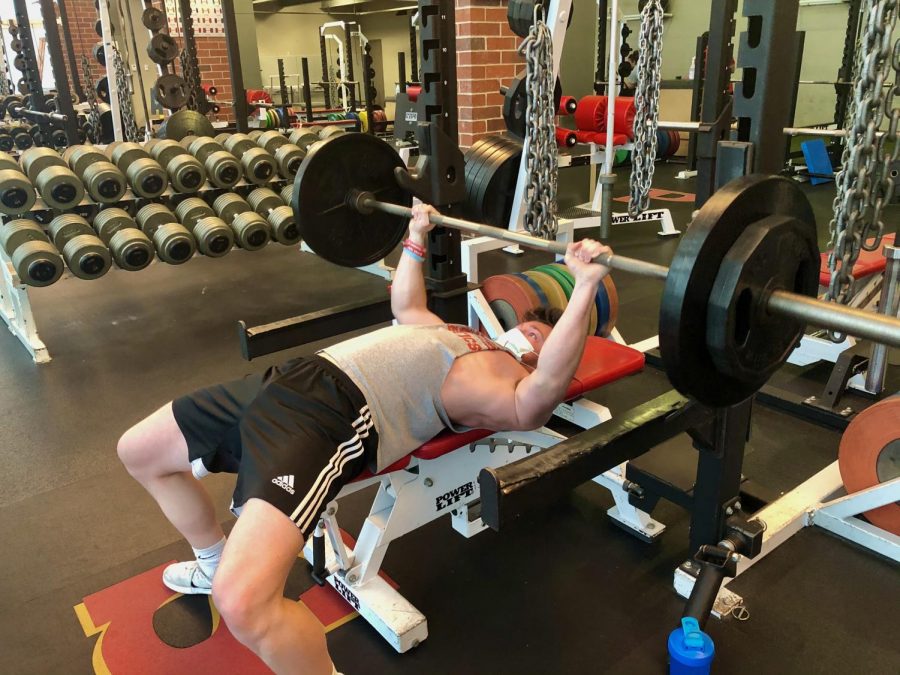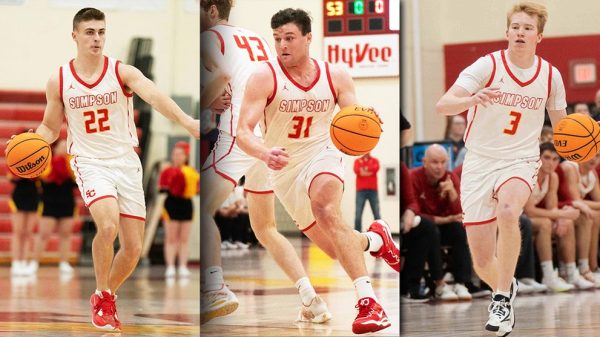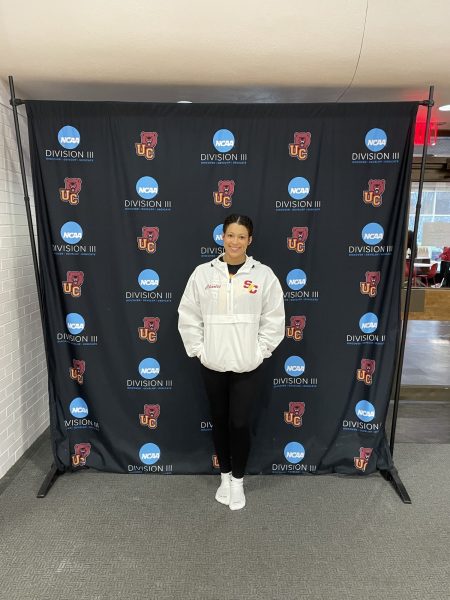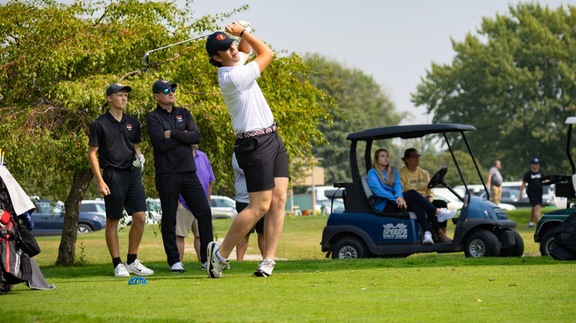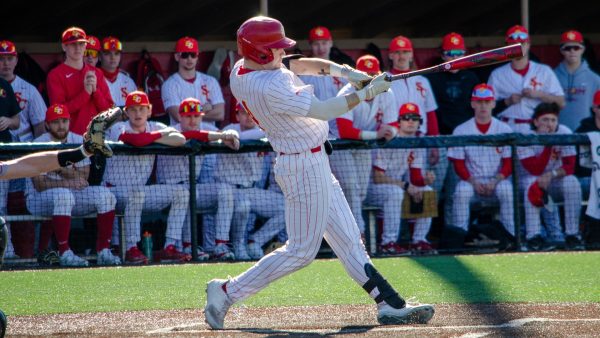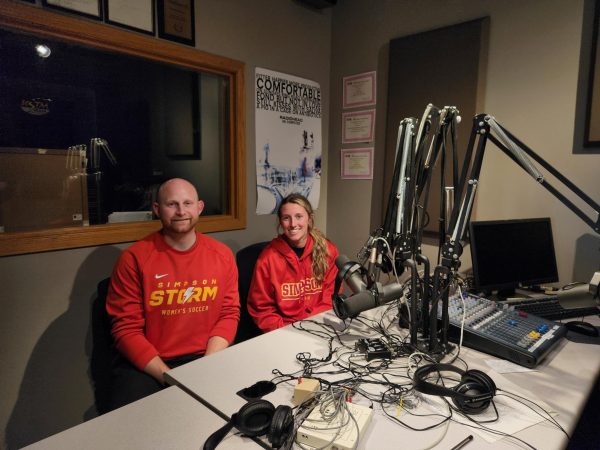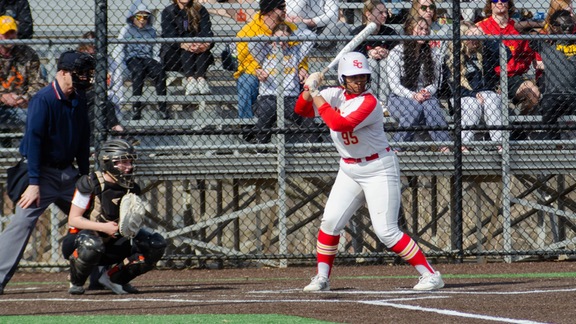Simpson strength and conditioning adapt to spring sport surge
February 10, 2021
The Simpson College Strength and Conditioning Department face challenges in weight room scheduling as several Simpson athletic teams have had their respective seasons postponed to the spring due to COVID-19.
Football, volleyball and both men’s and women’s soccer teams will now be competing in the spring alongside the regularly scheduled spring sports: track and field, baseball, softball and men’s tennis—all of whom lost their seasons last year.
All of these different sports competing simultaneously present an array of challenges for the teams themselves, but notably for the Strength and Conditioning Department.
With an exceedingly high number of athletes both practicing, lifting, conditioning and receiving treatment all during the spring, the Strength and Conditioning staff must adapt in a way that fosters both the success and safety of Simpson athletes.
“Athletes are still required to wear masks in the weight room; we still make athletes socially distance,” Craig Konrardy, Strength and Conditioning Coordinator at Simpson College, said. “CMT gave us the OK to train teams that were in-season as normal […] However, we try to avoid overlapping different teams in case something were to happen.”
Simpson athletes have begun on-campus COVID-19 testing weekly since returning from winter break, which has alleviated some of the stress surrounding collegiate athletics. With a larger number of teams competing this spring, the weight room is understandably hectic.
“We’re trying to manage more things […] we saw what happened last year, and we want to avoid that. Everyone is getting tested, yes, but if one person tests positive, how many teammates will have to quarantine? We just want to avoid that as much as possible,” Konrardy said.
Kenadi Batchelor, Assistant Director of Strength and Conditioning, highlights how scheduling has become one of the main stressors of her and the rest of the Strength and Conditioning Staff.
“It’s hard trying to then get every team in here and give them time while working with practice schedules without overlapping teams,” Batchelor said. “Everybody is in season and everyone’s practices are around the same times…it’s just a bunch of different hectic things now put into place.”
Several factors play into how Konrardy and Batchelor are navigating the hefty schedule.
“I think a lot of comes down to the facilities. Figuring out where, when, and which teams are practicing,” Konrardy said. “We’re looking at what the teams need and how they can do what they need with the space they have. From there we work on building a routine,” Batchelor added.
The question of “what if” is proving to be a difficult part of this process.
“I think not knowing if all of the sudden we could be sent back to more restrictive phases is hard,” Batchelor said. “Although I think the athletes did really well in the weight room during those more restrictive conditions…I’m concerned at what would occur if we were to go back and the possibility of athletics being shut down at that point.”
Communication plays another key role when navigating these hefty schedules.
“Communication might be the hardest part; between both me and Kenadi about what the plan is for the day, what the plan would be if something were to happen, how the weather might factor into things, canceled classes—what those things mean for sports and how they impact scheduling. We need to communicate all of that stuff so that we’re in the know and coaches are in the know. Again, those ‘what if’s’” Konrardy said.
Unlike the first semester, athletes no longer have to reserve a rack in the weight room two times via SignUp Genius. This is easier on many athletes’ schedules in addition to alleviating other issues the Strength and Conditioning staff faced when trying to make the weight room accessible during a pandemic.
“We were having issues with people signing up and not showing up, people signing up for the wrong day or showing up at the wrong time,” Konrardy said. “We figured it’d be easier to have it on a more first-come-first-serve basis.”
Senior Jacob Morris is pleased with this change and feels he and his teammates are taking advantage of the more flexible scheduling.
“I like it a lot better personally because it’s a lot easier for people to work their work-out in around their schedule,” Morris said. “Before you could only go twice a week, and I know a lot of people want to go in more than that. Now we’re able to do that.”



